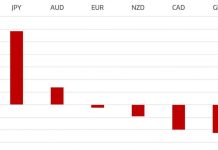Missouri stands at the edge of a major economic opportunity. With the nationwide surge in legalized sports betting, lawmakers and economists alike are zeroing in on the potential financial windfall this industry could bring to the Show-Me State. From high-stakes revenue projections to detailed breakdowns of how funds might be allocated, this article explores how much Missouri could realistically earn in its first year of legal sports wagering and how those funds might be used. We’ll also compare Missouri’s outlook with states like Illinois and Kansas, two regional trailblazers in sports betting legalization.

How Much Could Missouri Earn in Year One of Legal Sports Betting?
According to early projections from multiple fiscal analysts within the Missouri legislature, the state could earn upwards of $28.9 million in tax revenue during its first year of legalized sports betting. This estimate assumes an annual handle of $1.7 billion, a figure based on Missouri’s population of 6.1 million people and usage patterns drawn from similarly sized states that have already legalized sports wagering. With a proposed 10% tax rate on adjusted gross revenue (AGR), these figures present a substantial opportunity to boost Missouri’s overall state budget.
Missouri’s Sports Betting Tax Plan: Where Would the Money Go?
Under current legislative proposals, most tax revenue from legal sports betting in Missouri would be directed toward public education initiatives and vital infrastructure. Specifically, $5 million annually would be earmarked for the Compulsive Gamblers Fund, targeting prevention, treatment, and awareness programs. The rest of the generated funds would be allocated to the Gaming Proceeds for Education Fund, designed to improve Missouri’s public-school systems, particularly in underfunded rural areas and urban school districts grappling with overcrowding and outdated facilities.
Comparing Missouri’s Potential Revenue to Neighboring States Like Illinois and Kansas
Illinois reported $141 million in sports betting tax revenue in 2023 with a 15% tax rate and a population of approximately 12.7 million. Kansas, with a 10% tax rate like Missouri’s proposal and a population of just under 3 million, generated around $7 million in its first full year. Missouri’s projected $28.9 million would place it right in the middle, demonstrating solid potential given its geographic location and sports culture, particularly with fan bases for the Kansas City Chiefs, St. Louis Cardinals, and St. Louis Blues driving betting engagement.
From Schools to Roads: How Sports Betting Funds Could Support Public Services
In addition to educational reform, legalized sports betting could help address long-standing concerns about Missouri’s aging transportation network. Legislators are considering earmarking a portion of the revenue for road maintenance, particularly in rural counties that have been neglected in recent infrastructure budgets. Public health programs and broadband expansion for underserved regions are also on the table, creating a diverse and far-reaching potential impact. With targeted investments, revenue from sports betting could bridge gaps in both urban and rural development across the state.
Short-Term vs. Long-Term Revenue Gains for Missouri from Legalized Wagering
While the projected $28.9 million in first-year revenue is promising, long-term projections show even more lucrative potential. Experts estimate that within five years, annual tax revenues could increase to over $50 million if the market grows at a rate consistent with national trends and mobile betting platforms are fully utilized. This growth would depend on the integration of multiple online sportsbooks, competitive odds, and sustained consumer interest beyond the novelty phase. Missouri has the advantage of learning from early adopters to design a regulatory framework that ensures steady growth.
Consumer Incentives and Market Competition Driving Early Engagement
To kickstart Missouri’s sports betting ecosystem, major operators plan to offer enticing sign-up promotions. One prominent example is the BetMGM bonus code Missouri, which provides new users with tailored welcome packages, such as risk-free bets or deposit matches. These offers could drive high adoption rates in the early months, significantly contributing to the state’s initial handling and boosting tax revenues. With several platforms competing for user attention, bettors stand to benefit while the state reaps the fiscal rewards.
Why Legal Sports Betting is More Than Just a Revenue Stream
Legalizing sports betting would also support local economies through job creation and increased tourism. Casinos, sportsbooks, and affiliate businesses would hire staff to manage operations, customer service, tech infrastructure, and compliance. Missouri-based sporting events, especially those involving high-profile teams like the Kansas City Royals or Mizzou Tigers, could see increased tourism and related spending. The ripple effect across restaurants, hotels, and retail could provide additional state and local tax revenue beyond the 10% sports betting tax.
Mobile vs. Retail: Projected Split in Betting Volume
Data from states like New York and Pennsylvania shows that 85–90% of sports bets are placed online. If Missouri sees similar patterns, mobile platforms will account for most of the $1.7 billion projected annual handle. This mobile-centric approach also reduces overhead costs and increases accessibility, allowing bettors from all corners of the state to participate. This format benefits state coffers by maintaining a steady, scalable flow of taxable revenue, especially during peak sports seasons like the NFL playoffs and March Madness.
Safeguarding Consumers While Generating Revenue
Alongside projected earnings, Missouri lawmakers are focused on consumer protection. The $5 million annually allocated to the Compulsive Gamblers Fund underlines the state’s commitment to responsible gambling. Legislators are proposing mandatory age verification, deposit limits, and self-exclusion programs to protect vulnerable users. These precautions are vital in ensuring that while Missouri capitalizes on the financial benefits of sports betting, it also mitigates social and psychological harm.
Political Momentum and Legislative Timing
After multiple stalled attempts, 2025 is shaping up to be a pivotal year for sports betting legislation in Missouri. Lawmakers on both sides of the aisle are now acknowledging the economic loss of seeing residents cross borders into Illinois, Kansas, or Arkansas to place legal bets. With bipartisan support growing and public opinion favoring legalization, Missouri could finally capitalize on an opportunity that surrounding states have already embraced. The momentum is strong, and if passed, implementation could begin within months.
The Fiscal Future of Missouri Could Be Written on the Scoreboard
Legal sports betting is not a silver bullet, but it offers Missouri a chance to strengthen its budget without increasing taxes. From the projected $28.9 million in year one to the long-term $50 million+ horizon, this industry can help Missouri reinvest in its people, its infrastructure, and its future. With careful regulation, transparency, and support from stakeholders, Missouri’s entry into the sports betting arena could be a financial game-changer.
HedgeThink.com is the fund industry’s leading news, research and analysis source for individual and institutional accredited investors and professionals


































